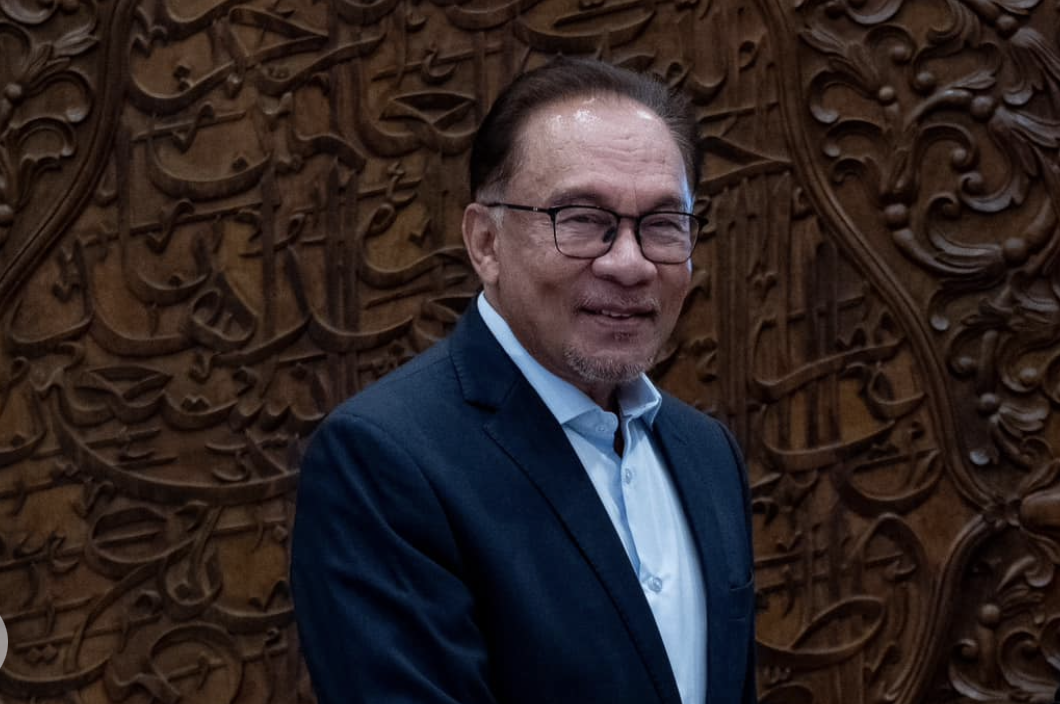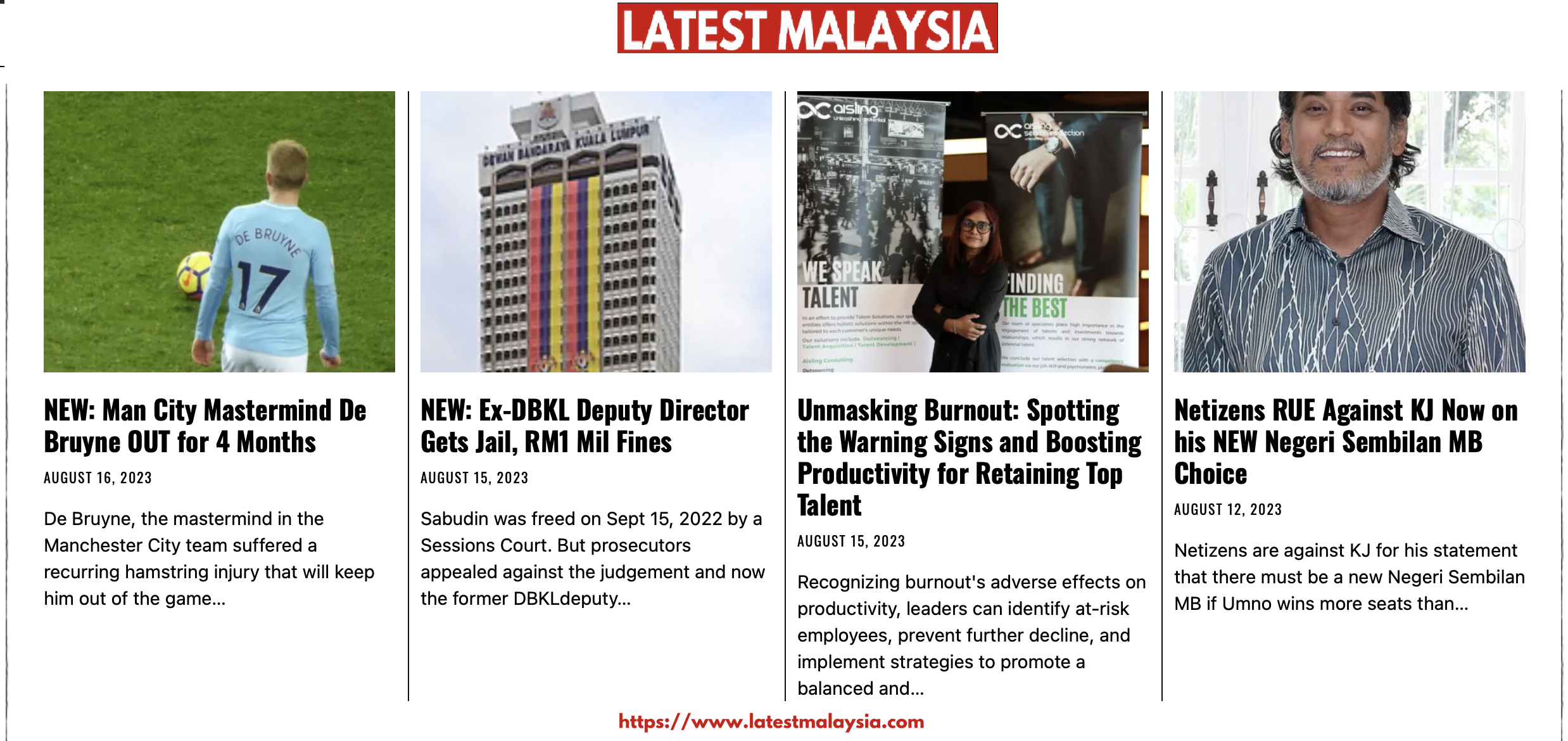Malaysia's State Polls Unveil Subtle Shifts: Anwar Ibrahim's Leadership Tested
Though the broader political landscape has not undergone a seismic shift, the results underscore alterations in support and dynamics within specific regions and communities. Anwar Ibrahim now confronts the intricate task of unifying a divided nation while fortifying his standing...

Prime Minister Anwar Ibrahim is facing a critical need to refine his communication strategies, fostering a deeper connection with the electorate and effectively articulating his policy agenda and aspirations for the nation's future.
This strategic shift is vital to allay apprehensions surrounding his capacity to deliver on his commitments and garner wider voter support. Though Anwar's Pakatan Harapan secured dominance in Selangor, Penang, and Negeri Sembilan, it's noteworthy that Perikatan Nasional garnered significant backing from voters.

The outcome of the recent regional elections in Malaysia is being interpreted as a setback for the ruling coalition in its maiden test with the electorate. Analysts contend that even though the results might present a status quo at face value, it's crucial to recognize the substantial inroads made by the opposition, particularly Perikatan Nasional, in key areas like Selangor and Penang.
Though the broader political landscape has not undergone a seismic shift, the results underscore alterations in support and dynamics within specific regions and communities. Anwar Ibrahim now confronts the intricate task of unifying a divided nation while fortifying his standing as the nation's leader.
The tougher task of unity ahead
According to analysts, Anwar must recalibrate his approach, considering measures such as distributing assistance to citizens before elections and enhancing engagement by introducing the 'Madani' concept. However, it's recognized that the concept's resonance is limited among the majority, potentially appearing excessively Islamic for a nation polarized along liberal lines.
This concept ties into Anwar Ibrahim's commitment to an agenda of inclusive representation, seeking to create a "Malaysia for all Malaysians." Yet, his stance on inclusiveness for all races and religions could evoke concerns among certain Malays who prioritize safeguarding and advancing Malay interests. Apprehensions may arise, and this is seen at the polls, that his emphasis on inclusiveness might dilute Malay representation and privileges 0r power.
Historically, Anwar Ibrahim has faced accusations of betraying his own party and government by spotlighting mismanagement, nepotism, cronyism, incompetence, and corruption within his party and government. While that was part of the Umno plans to undermine Anwar after the 1998 events, they still resonate with PN and PAS leaders now peddling this image of the new PM.
This perception of betrayal might have led some Malays to question his loyalty and trustworthiness, particularly when some allegedly politically corrupt figures are actively participating in the Unity Government campaigns. For the voters, Umno is still 'unclean' and the leadership of Ahmad Zahid Hamidi is still unclear in their thoughts.

Leniency towards Sheraton Move actors
On the other hand, a political analyst asserts that Anwar's leniency towards corrupt and disloyal individuals, exemplified by Azmin's freedom to campaign and secure victory, has been exploited.
It's notable that Azmin Ali, despite a history marked by controversy, including corruption allegations and internal strife or personal and moral decay, was able to secure the Hulu Kelang state seat in the recent elections.
The focus on PAS-held states like Kedah and the excessive attempts to undermine some of the Islamic party leaders backfired. While netizens are arguing whether the campaigns outside the PH-held states were necessary in the PH-BN attempt to garner support among PAS-Bersatu-PN voters, some are stating it clearly that PH abandoned some of its legacy areas in Selangor, Negeri Sembilan and Penang. This strategy allowed the PN to make inroads in these states to the detriment of the Unity Government.
Meanwhile, Anwar's campaign seemingly fell short in adequately addressing economic concerns, a central worry for Malaysians. This omission might have impacted his ability to resonate with voters and earn their endorsement. Despite Anwar's commitment to combating corruption and enhancing the nation's economy, skepticism might prevail among some Malays who doubt his capability to fulfill these promises. His track record and capacity to effectively tackle their economic anxieties might come under scrutiny.
As a result, the fight against corruption did not impact on the vote tally in the PAS-held states. All those accused of corruption effectively won. The other accused of extremism and religious bigotry won with even bigger margins. The PH-BN failed to stop the green wave in the kampungs.

Conclusive remarks: Power and Popularity
Contrastingly, Anwar has been observed dedicating more time to grassroots interactions rather than being confined to Putrajaya, focusing on economic rectification. It is good to be popular but it will be greater to be tougher and to force the population to swallow the bitter pills when necessary.
Notably, his ally Rafizi Ramli serves as the Minister of Economy in Malaysia, renowned for his adeptness in dissecting economic intricacies and contributing to national economic recovery. However, debates persist regarding the scope of his ministry's responsibilities and whether national financial health falls within its jurisdiction.
The opposition believes that Anwar is failing as the Minister of Finance. They want him to relinquish the post to someone who can put more efforts on finding pure financial solutions to the problems the country is facing.
Whether there should be a merger of the 'economy' with the running of the finances of the country, is also another debate among experts.

